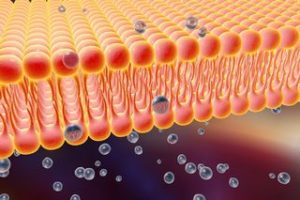#GERD#Hyperglycemia#LIPH#Fasting#HyaluronicAcid #Collagen #LiverGallbladderCleanse #Hemp #Stress #BrainAge #Drugs #EndocrineDisruptiors #Hypertension#Microplastics #WaterSmarts #ToxicChemicals #LiverHealth #MilkThrisle #Magnesium #LiverCleanse #MedicinalMushroomsForAtheleticPerformance #BrainBoostingMedicinalMushrooms #RoyalColloids #CalciumDGlucarate #ProteinMalfunction #MedicinalMushrooms #JapaneseLongevitySecret #PlantarFasciitis #BlackCuminTheBlackGold #ThroatThyroidEsophagusLarynx#BasicBiohacks#SkinHealth#VariousLipids #Radiation #LungHealth #Sinkholes #Praying #HepatitisC #ImmuneBoostingFoods #ImmuneBoostingSupplements #ImmuneBoostingBiohacks #BetaGlucans #BetaGlucanKids #Phytoplankton
Stress is an unavoidable part of life, still we can avoid OR benefit from it. There are two main kinds of stress — acute stress and chronic stress — and not all stress is bad for you.
- Acute stress – is the reaction to an immediate threat, commonly known as the “fight or flight” response. Once the threat has passed, your levels of stress hormones return to normal with no long-lasting effects. Some degree of acute stress is even considered desirable as it primes your brain for peak performance. There is no borderline between pressure and the acute stress (the good one). Epinephrine (also known as adrenaline) and norepinephrine are stress hormones produced in moments of extreme excitement. They help you think and move fast in an emergency. In the right situation, they can save your life. They don’t linger in the body, dissipating as quickly as they were created.
Need to quote the great Billy Jean “Pressure is a privilege”!
- Chronic stress — the kind most of us face day in, day out — is a killer. Chronic stress makes you more vulnerable to everything from cancer to the common cold. The non-stop elevation of stress hormones not only makes your body sick, it negatively impacts your brain as well.
Then the cortisol comes in play. Can’t “stress” enough how dangerous is the cortisol when spikes up. Cortisol streams through your system all day long, and that’s what makes it so dangerous. Excess cortisol leads to weight gain, osteoporosis, digestive problems, hormone imbalances, poor sleep, short attention span, memory issues, cancer, heart disease, and diabetes.
When stress becomes chronic, it changes your brain’s function and even its structure down to the level of your DNA, that will also be passed on your kids.
Cortisol creates a surplus of the neurotransmitter glutamate. Glutamate creates free radicals — unattached oxygen molecules — that attack brain cells much in the same way that oxygen attacks metal, causing it to rust.
- Stress creates free radicals that kill brain cells.
Free radicals actually punch holes in the brain cell walls, causing them to rupture and die. If stress causes you to lose sleep, eat junk food, drink too much alcohol, or smoke cigarettes to relax, these are contributing to your free radical load.
- Stress creates never ending vicious cycle of fear and anxiety
It builds up an area of your brain called the amygdala. This is your brain’s fear center. Stress increases the size, activity level and number of neural connections in this part of your brain. This makes you more fearful, causing a vicious cycle of even more fear and stress.
- Stress halts the production of new brain cells.
Every day you lose brain cells, but every day you have the opportunity to create new ones. Brain-derived neurotrophic factor (BDNF) is a protein that’s integral in keeping existing brain cells healthy and stimulating new brain cell formation. It can be thought of as fertilizer for the brain. BDNF can offset the negative effects of stress on the brain. But cortisol halts the production of BDNF resulting in fewer new brain cells being formed. Lowered levels of BDNF are associated with brain-related conditions including depression, OCD, schizophrenia, dementia, and Alzheimer’s disease.
- Serotonin, the “happy molecule“,
It plays a large role in mood, learning, appetite control, and sleep. Women low in serotonin are prone to depression, anxiety, and binge eating. Men, on the other hand, are more prone to alcoholism, ADHD, and impulse control disorders. CBD directly activates multiple serotonin receptors in the brain, giving you the balance you need in positive decision making
- Dopamine – the “motivation molecule.”
It’s in charge of your pleasure-reward system. Too little dopamine can leave you unfocused, unmotivated, lethargic, and depressed. People low in this brain chemical often use caffeine, sugar, alcohol, and illicit drugs to temporarily boost their dopamine levels. Serotonin-based depression is accompanied by anxiety and irritability, while dopamine-based depression expresses itself as lethargy and lack of enjoyment of life. CBD derived from hemp is known for its fast interaction with dopamine and is highly recommended for optimal brain health
Stress can cause your brain to seize up at the worst possible times — exams, job interviews, and public speaking come to mind. This is actually a survival mechanism. If you’re faced with a life – death situation, instinct and training overwhelm rational thought and reasoning. This might keep you from being eaten by a tiger, but in modern life this is rarely helpful.
Stress impairs your memory and makes you bad at making decisions. It negatively impacts every cognitive function
- Stress can let toxins in your brain
Your brain is highly sensitive to toxins of every kind.
The blood-brain barrier (BBB) is a group of highly specialized cells that acts as your brain’s gatekeeper. This semi-permeable filter protects your brain from harmful substances while letting needed nutrients in. Stress makes the blood-brain barrier more permeable, in effect making it leaky.
This lets things into the brain you don’t want there such as pathogens, heavy metals, chemicals, and other toxins. Having a leaky BBB is associated with brain cancer, brain infections, and multiple sclerosis.
- Stress leads to premature aging on a cellular level, causing cells in both your body and your brain to commit suicide prematurely.
To understand how this happens, we need to take a look at a part of your chromosomes called telomeres. You may recall from high school biology that when a cell divides, it passes on the genetic material to the next cell via chromosomes.
Telomeres are protective end caps on our chromosomes similar to the plastic tips on shoelaces. 
(Telomeres are shown in contrasting colors to the rest of the chromosome in this image.) Every time a cell divides, the telomeres get a little shorter. When they reach a critically shortened length, they tell the cell to stop dividing, acting as a built-in suicide switch. Subsequently the cell dies. Shortened telomeres lead to atrophy of brain cells and longer telomere length leads to the production of new brain cells. Telomere length may be the most important indicator of biological age and disease risk.
- A little-known fact – the brain has its own immune system.
Special immune cells called microglia protect the brain and spinal cord from infections and toxins. Unfortunately, a microglial cell has no ON or OFF switch, so once it is activated, it creates inflammation until it dies. Chronic stress is one of the factors that increases the risk of activating your microglia, thus producing brain inflammation. It’s generally believed that depression is caused by serotonin deficiency, but there’s a growing body of evidence that brain inflammation is the root cause of depression instead. This theory is called the “cytokine model of depression.” Activated microglia produce cytokines — proteins that turn on the inflammation response in the brain. Cytokine production is linked to depression including major depressive disorder and risk of suicide. It’s also associated with anxiety, memory loss, and inability to concentrate, as well as some serious disorders including schizophrenia, Parkinson’s, and Alzheimer’s.
Did you know that among all surgeons, brain doctors are the most relaxed and easy going. Dealing with stress – some are natural – many of us need to learn how to calm down and have FUN.
So yeah, just take your time, don’t worry, give yourself a break, anything that bothers you will pass, try to benefit from it
Here are five simple tips to stop stress in its tracks and overcome its harmful effects on your brain. “Balance is the Key“
- Stop free radical damage by eating a diet high in antioxidant-rich foods like fruit, vegetables, dark chocolate, and green tea.
- Increase levels of brain-boosting BDNF by getting daily physical exercise. It doesn’t have to be strenuous. Walking is excellent, so are exercises with strong mind-body orientation like yoga, tai chi, and qigong.
- Meditate. Meditation not only reduces stress, it’s a proven way to rejuvenate your brain by keeping telomeres long. Meditation is also the best tool for learning how to master your thoughts. Stress does not come from events in your life as much as it comes from your thoughts — your automatic negative reactions and cognitive distortions
- Try one of the many mind-body relaxation techniques such as self-hypnosis, biofeedback, autogenic training, simple visualization, nanosizing
- Look into taking an adaptogenic herbal remedy. Adaptogens increase your resilience to stress while supporting overall health. They promote balance between feeling energetic and feeling calm. Examples of adaptogens include raw phytoplankton, adaptogenic hemp oil, ginseng, holy basil, arctic root, and bacopa.
NOAGENATION.COM
